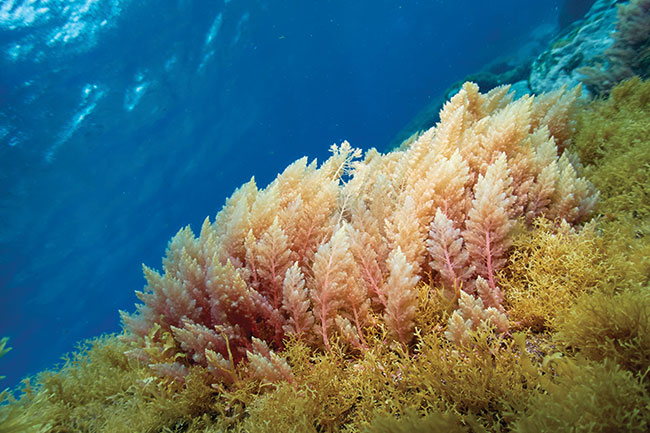| |
| |
 |
 |
| |
 |
|
@{mv_date_MMM d, yyyy}@ |
|
| |
Farmers have been reluctant to sell, and corn and soybean prices have fallen from their earlier peaks, leaving elevators with lower levels of grain ownership to take advantage of.
» Read More...
AAFC is looking to invest in and advance what it calls "innovative, scalable and economically viable practices, processes and technologies" that contribute to the net reduction of methane emissions.
» Read More...
A three-year, $618,000 grant from the USDA is funding a study by scientists at Texas A&M and Mississippi State University to explore dairy manure clean-up via black soldier flies. The team would then examine the flies’ value as a potential ingredient in livestock, poultry and aquaculture feed.
» Read More...
|
| |
|
| |
 One of the most promising solutions for reducing methane emissions is through feed additives. For example, adding sunflower oil to a typical North American cow diet of corn, distillers’ grain, silage, vitamins and minerals can reduce emissions by about 15 per cent. Most recently, a food additive derived from tropical red seaweed has captured researchers’ interest for its ability to act as a methane inhibitor. Called Asparagopsis taxiformis, this species of red algae has been shown to reduce methane emissions when ruminants are fed a diet containing a small percentage of the seaweed additive.
» Read More...
One of the most promising solutions for reducing methane emissions is through feed additives. For example, adding sunflower oil to a typical North American cow diet of corn, distillers’ grain, silage, vitamins and minerals can reduce emissions by about 15 per cent. Most recently, a food additive derived from tropical red seaweed has captured researchers’ interest for its ability to act as a methane inhibitor. Called Asparagopsis taxiformis, this species of red algae has been shown to reduce methane emissions when ruminants are fed a diet containing a small percentage of the seaweed additive.
» Read More... |
| |
| |
|
| |
|
|
| |
| |



